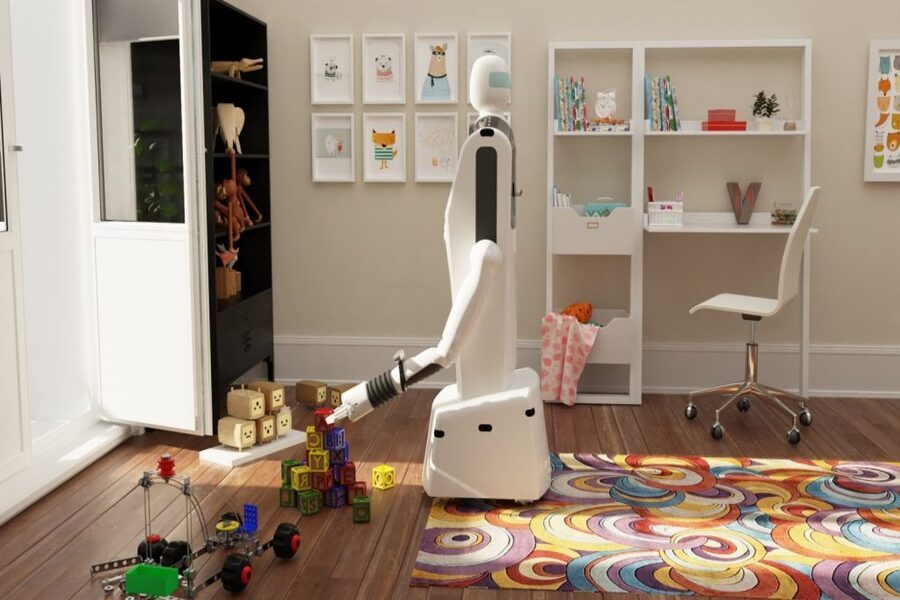According to experts, 39 percent of the time spent on household chores and caring for loved ones could be automated in the next ten years.
Researchers from the UK and Japan consulted 65 artificial intelligence (AI) experts to predict how automated household tasks will become in the next ten years.
While catering to the young or elderly was expected to be the least affected by AI, experts indicated that grocery shopping is likely to see the most automation.
The study is published in the journal PLOS ONE.
Researchers at the universities of Oxford and Ochanomizu University in Japan were interested in the potential impact of robotics on unpaid domestic work: “If robots are going to take our jobs, should they at least pick up the garbage for us?” they asked. Will you?”
The researchers noted that robots “for domestic household duties, including robot vacuum cleaners,” have become the most mass-produced and sold robots in the world.
For their predictions about robots in the home, the team consulted 29 AI experts in the UK and 36 AI experts in Japan.
The researchers found that Japanese women were more pessimistic about home automation than their male counterparts, but the opposite was true in the UK.
Still, experts believe that automation can take on a variety of roles: “Only 28 percent of care work, including teaching your child, is accompanying your child,” according to Dr. Lulu Shi, a postdoctoral researcher at the Oxford Internet Institute. , or caring for him. An older family member is likely to become an automaton.”
On the other hand, scientists predict that the technology will reduce the time spent shopping for food by 60 percent.
Even so, claims that robots will relieve us of household responsibilities “in the next ten years” have a long history, so some skepticism is warranted. Tomorrow’s World, a 1960s television program, featured a domestic robot that could perform various household tasks, including cooking, walking the dog, babysitting, shopping, and mixing drinks.
Ekaterina Hertog, one of the study’s authors and an associate professor of AI and society at Oxford University, compared the optimism surrounding self-driving cars to the study’s findings: “I believe that self-driving cars for decades have been promised, but we haven’t been able to make robots work properly or self-driving cars navigate the unpredictable environments of our streets. Houses are comparable in that sense.”
The technology is more likely to help humans, according to Dr. Kate Devlin, a reader in AI and Society at King’s College, London, who was not involved in the research “to build a robot that can perform many or a wide range of activities, expensive. And complex. In contrast, the development of assistive technology that augments rather than replaces humans is easier and more rewarding.” She spoke.
According to research, home automation can reduce the amount of time spent on unpaid household chores. Working-age men do less than a quarter of this unpaid work in Japan compared to working-age women in the UK.
According to Professor Hertog, women’s incomes, savings, and pensions are negatively affected by a disproportionate amount of domestic labor. Therefore, the researchers suggest, greater gender equality may result from increased automation.
The technology, though, can be expensive. According to Professor Hertog, if domestic help systems are only affordable to a segment of society, “this will increase inequality in leisure time.”
He also said that society should be aware of the problems that smart automation in the home can create, “Where something like Alexa is able to listen and record what we’re doing and report back.”
I’m not sure our society is ready to handle this general invasion of privacy.

